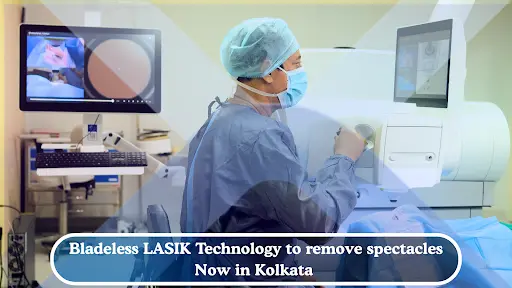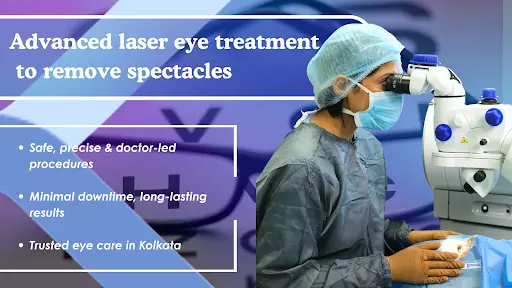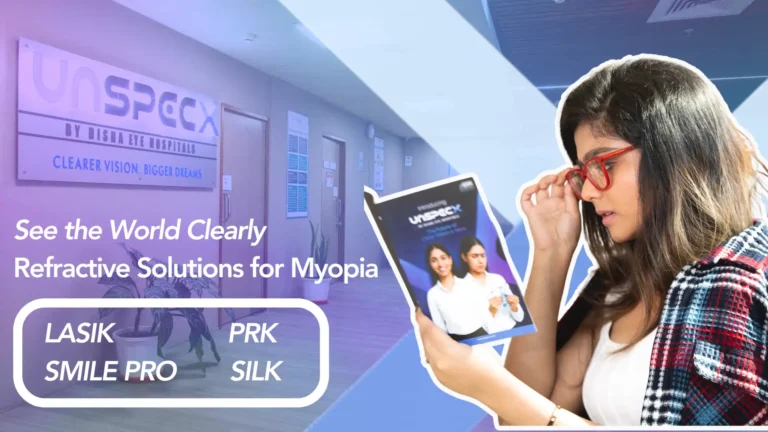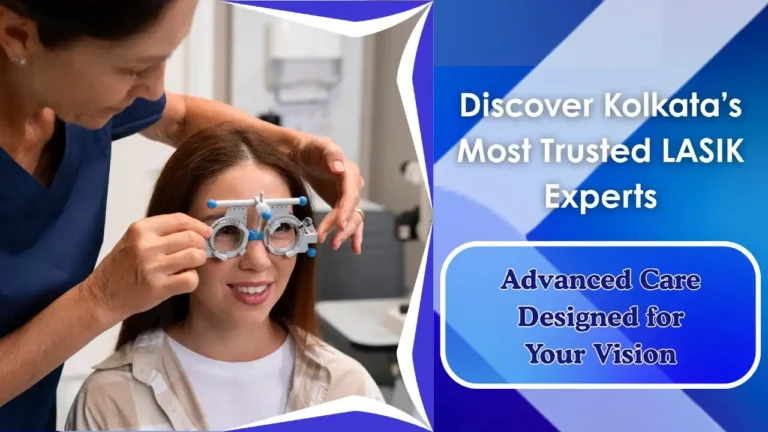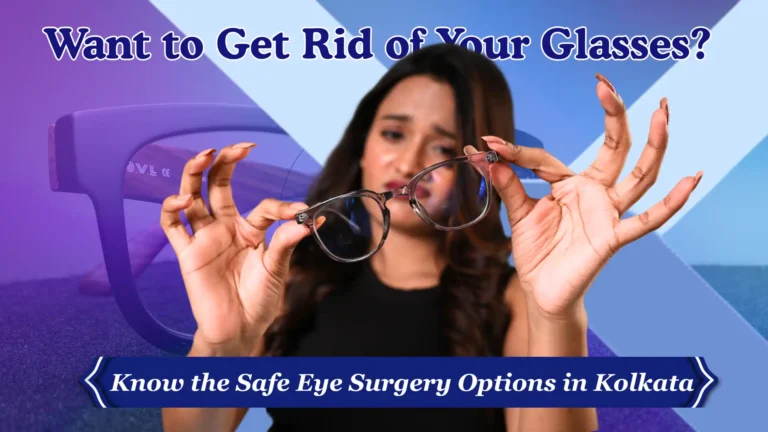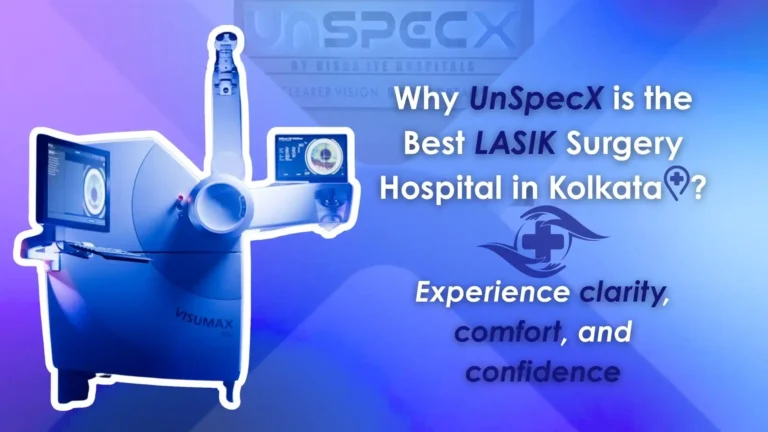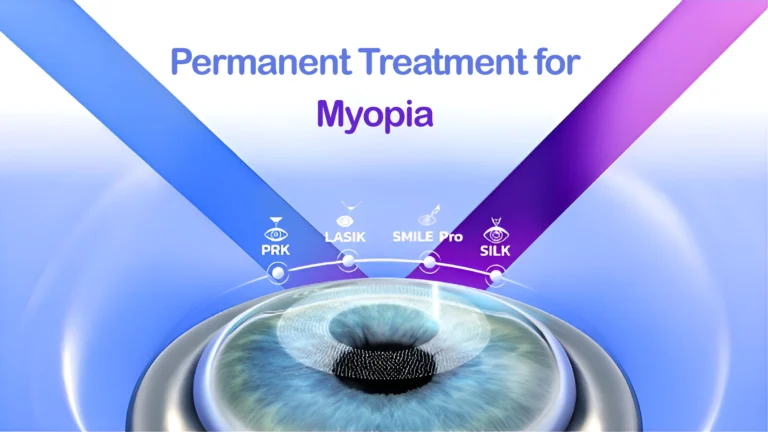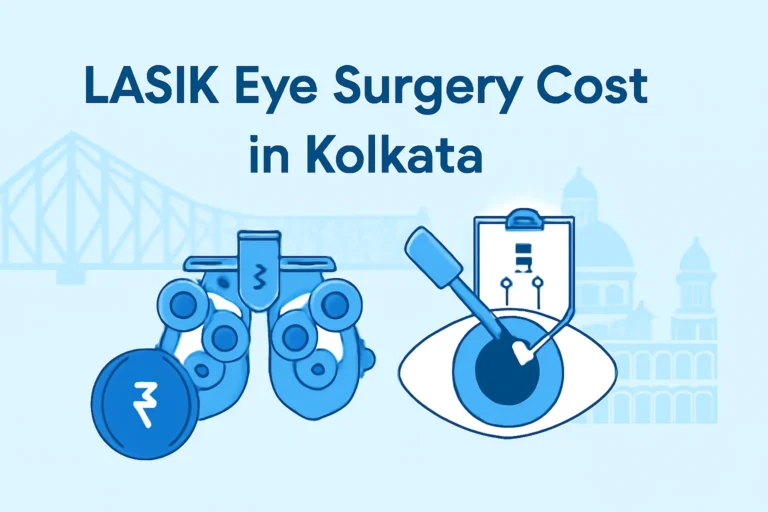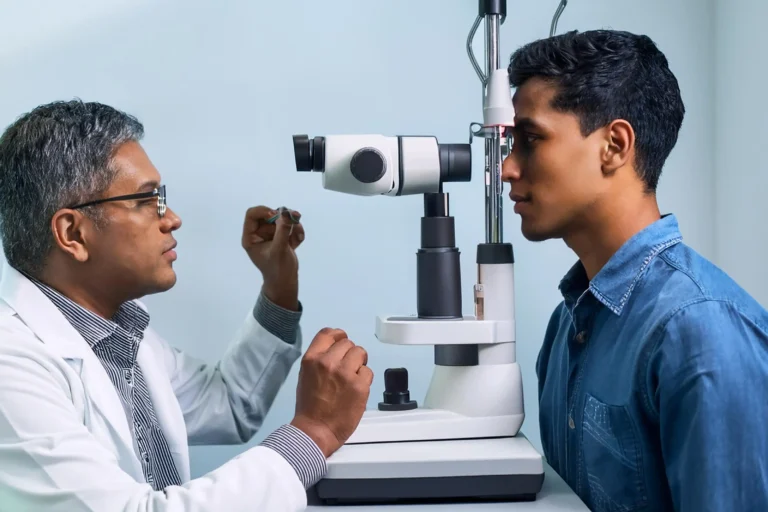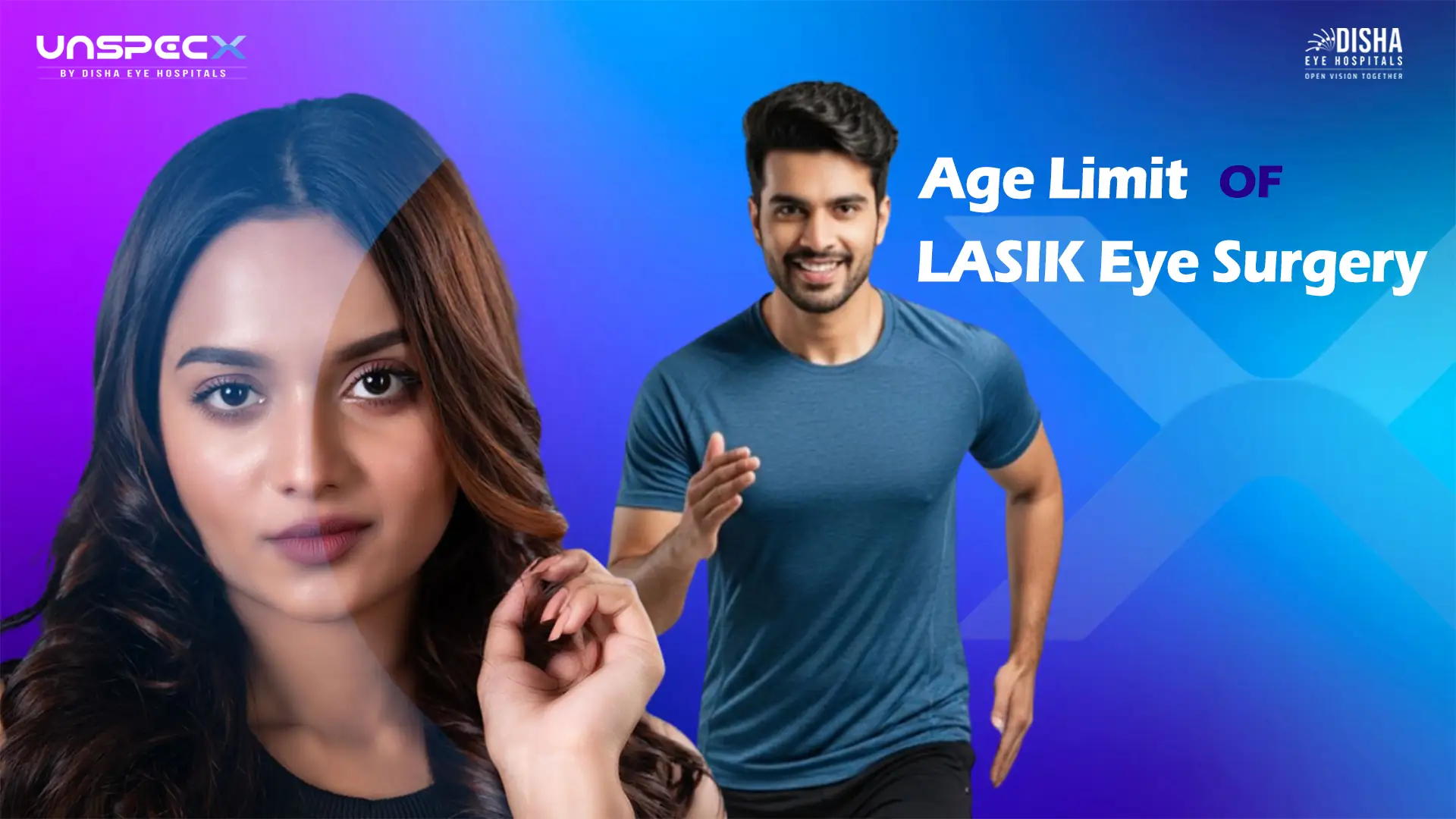
If you are planning vision correction via LASIK surgery, one of the most common questions is: What is the age limit for LASIK?
Understanding the LASIK age limit is essential before considering LASIK eye surgery. Typically, candidates must be between 18 and 40 years old with stable vision for at least one year but eligibility depends on overall eye health and vision stability.
In this guide, you will learn:
- Minimum age limit for LASIK eye surgery
- Maximum age limit for LASIK
- Pros and Cons of Getting LASIK at Different Ages
- Factors that Affect Eligibility of LASIK, Except Age
- Age Limit of Other Laser Surgeries
- Alternatives for Younger and Older Patients
What is the Best Age for LASIK Surgery?
The LASIK surgery age limit generally follows these guidelines:
- Minimum age: 18 years
- Ideal age range: 20–40 years
- Maximum age limit: No fixed upper limit (depends on eye health)
While 18 is the technical minimum age requirement, it is recommended waiting until 21 to ensure prescription stability.
Minimum Age Limit for LASIK Eye Surgery
The minimum age requirement for LASIK eye surgery is typically 18 years, as recommended by LASIK eye surgeons.
Why 18?
- Eyes are usually fully developed
- Vision prescription becomes more stable
- Legal age for refractive surgery
However, LASIK specialists often recommend waiting until:
- Vision has been stable for at least 12 months
- No recent changes in glasses or contact lens prescription
If your prescription is still changing, you may not meet the LASIK age requirement, even if you are 18.
Why Stability Matters?
LASIK reshapes the cornea permanently. If your vision continues to change after surgery, you may need enhancement procedures later.
💬 You should be at least 18 years old (21 for some lasers)
– Federal Trade Commission, Government of United States (Source)
Real-world Experience
What is the youngest age I can get LASIK surgery?
by inlasik
What are the Alternatives for Younger Patients?
For patients under 18 or those whose vision is still fluctuating, alternatives to LASIK may be considered. These include:
-
Contact lenses and glasses: The most common alternatives, though they may not be as convenient.
-
Orthokeratology (Ortho-K): Special contact lenses that temporarily reshape the cornea, offering a non-surgical way to improve vision.
💬 Ortho-k allows teenagers who need vision correction to see clearly during waking hours without the need for glasses or contact lenses.
– My Kids Vision, Government of United States (Source) -
Vision therapy: A non-surgical approach for correcting certain visual impairments, especially in younger individuals.
In many cases, younger patients with severe refractive errors might opt for corrective methods like implantable contact lenses (ICL), which are more suitable for those whose eyes are not yet stable for LASIK.
Maximum Age Limit for LASIK Eye Surgery
Many patients ask: What is the maximum age limit for LASIK eye surgery?
There is no strict upper age limit. However, after 40, natural age-related eye changes must be considered.
LASIK After 40
Patients over 40 may experience:
- Presbyopia (difficulty reading up close)
- Early cataracts
- Increased dry eye symptoms
You can still qualify for LASIK if:
- Your cornea is healthy
- No advanced cataracts
- No uncontrolled glaucoma
- Overall eye health is good
In some cases, surgeons recommend alternative procedures instead of traditional LASIK.
What are the Alternatives for Older Adults?
For older patients (ages over 50 years), there are several viable alternatives to traditional LASIK surgery, as the eyes’ natural changes with age require special considerations. LASIK can be performed after 50, but many patients in this age group benefit more from the alternatives. Among the most popular options are:
-
Cataract surgery: Often, cataract surgery is used to address vision problems in older adults. It can also eliminate the need for glasses.
-
Monovision LASIK: is a great option for patients over the age of 40 who are experiencing the effects of presbyopia. In monovision LASIK, one eye is treated to focus on distance vision, while the other is corrected for near vision. This technique allows the brain to naturally adjust to the difference in focus, minimizing the need for reading glasses. However, it’s important to consult with an experienced LASIK surgeon to determine if monovision is a good fit. Some patients may experience difficulty adjusting to the difference in focus, and a trial period with contact lenses mimicking monovision is often recommended before opting for surgery.
💬 Monovision LASIK and lens replacement surgery may help you see more clearly.
– Written by Harvard Health Publishing (HHP), consumer health information division of Harvard Medical School (HMS), the graduate medical school of Harvard University (Source)
Even when LASIK isn’t suitable, patients have the option of other procedures tailored to their age-related needs.
Some Real-world Sources
- At What Age Can We Go Lasik Surgery – Practo
- Can I do Lasik eye surgery at the age of 35 years? My prescription is -4.25 on both eyes. – Quora
Pros and Cons of Getting LASIK at Different Ages
Most surgeons agree that the best age for LASIK surgery falls between 20 and 40 years. However, every age bracket comes with its own considerations:
| Age | Pros | Cons |
|---|---|---|
| Early 20s |
|
|
| 20 years to early 40 years |
|
|
| 40 years and Beyond |
|
|
| 50 years and Older |
|
|
Factors that Affect Eligibility of LASIK, Except Age
Here are the other key aspects doctors consider before recommending the surgery:
-
Eye health: Conditions such as glaucoma, severe dry eye, or uncontrolled diabetes can impact outcomes.
-
Corneal thickness and shape: Thin or irregular corneas may not support safe laser reshaping.
-
Vision stability: A fluctuating prescription reduces the chances of long-term success.
-
Lifestyle needs: High-impact sports, military roles, or professions with risk of eye injury may influence the choice of procedure.
-
Expectations: Realistic goals are crucial; LASIK improves vision but may not guarantee perfect eyesight for life.
-
Other age-related options: A 45-year-old with healthy eyes could benefit from customised procedures like Monovision LASIK, even when someone younger may not qualify.
You can consult with the best hospital for LASIK eye surgery, to discover if your eyes are prepared for safe and permanent vision correction.
Age-Related Eye Conditions That Affect Eligibility
Especially after 40, common conditions that may disqualify a patient include:
- Presbyopia – Loss of near vision with age
- Cataracts – Clouding of the lens, common after 60
- Glaucoma – Increased eye pressure damages the optic nerve
- Macular Degeneration – Affects central vision
Age Limit of Other Refractive Surgeries
Like LASIK, there are the newer alternatives to refractive surgery for myopia (nearsightedness), farsightedness, and astigmatism, which are SILK and SMILE that are gaining popularity.
SILK Eye Surgery Age Limit
The SILK eye surgery age limit is generally 18 years. It reshapes the cornea with advanced precision, offering clearer vision and comfort. A stable prescription and healthy eyes are essential before choosing this procedure.
SMILE Eye Surgery Age Limit
The SMILE eye surgery age limit also starts at 18. Using a minimally invasive approach, it corrects vision with faster recovery. Stability of prescription and overall eye health remain key eligibility factors.
Final Answer: What Is the Age Limit for LASIK?
To summarize:
- Minimum age limit for LASIK eye surgery: 18 years
- Ideal age range: 20–40 years
- Maximum age limit for LASIK: No strict limit (depends on eye health)
If you’re considering LASIK eye surgery, it’s crucial to schedule a consultation today to determine your suitability based on age, eye health, and vision stability.
Written and Checked by:

Dr. Arup Bhaumik
Qualification: MBBS from Nil Ratan Sircar Medical College and MS in Ophthalmology from the University of Calcutta
Speciality: Cataract and Lasik
Experience: 15+ years in vision correction procedures with 70K+ surgeries
Frequently Asked Questions
LASIK typically lasts a lifetime, but some people may need a touch-up after 10-20 years due to natural age-related changes like presbyopia. Most enjoy long-term clear vision, especially if their eyes were stable before surgery. Regular checkups help maintain the best results.
Age matters in LASIK because your eyes must be fully developed and vision stable-usually after 18. After 40, age-related changes like presbyopia or cataracts may affect results or eligibility. A thorough eye exam helps tailor the safest, most effective option for your age.
While age plays a key role in LASIK eligibility, it’s not the only factor. LASIK may not be recommended if your prescription is still changing, you have thin or irregular corneas, uncontrolled diabetes, glaucoma, severe dry eyes, or if you’re pregnant or breastfeeding. In such cases, eye surgeons explore safer alternatives tailored to your specific needs, ensuring both safety and long-term effectiveness.
Yes, LASIK can be effective for people over 40 or 50, but age-related changes like presbyopia may affect near vision. While distance vision often improves, you might still need reading glasses. Options like Monovision LASIK or refractive lens exchange (RLE) may offer better results based on your needs.
Age affects LASIK outcomes by influencing vision stability and eye health. Younger patients often get longer-lasting results, while those over 40 may face presbyopia or other age-related conditions. Older adults might need reading glasses or alternative procedures for best results and long-term clarity.

